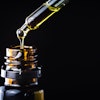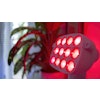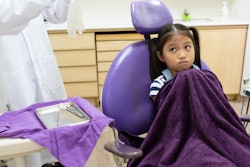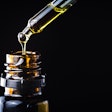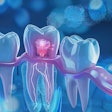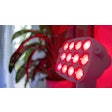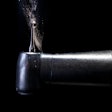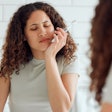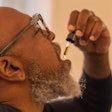
Music therapy combined with aromatherapy can effectively manage fear of dental care and associated anxiety in school-aged children, according to a study published on June 30 in the Journal of Dental Sciences.
Childhood dental anxiety and fear are associated with a high prevalence of tooth decay, toothache, and extraction. Dental pain worsens the quality of life for patients and has more serious implications if left untreated. This is a reinforcement that causes children to have more anxiety and fear.
One approach to address dental anxiety and fear without pharmacological intervention is to distract patients and manipulate the environment through music therapy and aromatherapy. Both methods are used in medical and therapeutic procedures to help lessen the psychological and physiological effects of anxiety, including changes in heart rate, respiration, and other central nervous system activity.
"Music therapy and aromatherapy are practical, effective, cost-effective, and appropriate methods of dental treatment in pediatric patients who may have anxiety and fear," wrote the study authors.
There are limited studies of these two non-pharmacological approaches in pediatric dentistry. Researchers aimed to examine the effectiveness of music therapy combined with aromatherapy on anxiety and fear of dental services among school-aged children.
A total of 128 school-age children participated in the study. Patients were divided into groups allowing researchers to analyze the effectiveness of music therapy, aromatherapy, and the two therapies combined.
Patients who received only music therapy had decreased dental anxiety and fear, decreased systolic blood pressure, and increased oxygen saturation values. Similarly, patients who utilized only aromatherapy also had decreased dental anxiety and fear, decreased systolic blood pressure, and increased oxygen saturation values.
There were even more benefits for patients who received the combination of music therapy and aromatherapy. Like the other groups, these patients had decreased dental anxiety and fear, decreased systolic blood pressure, and increased oxygen saturation, but they also had a decreased heart rate and decreased diastolic blood pressure.
Allowing patients to choose music according to their preferences helps reduce anxiety and fear, while aromatherapy can be used to minimize the effect of a strong dental lab smell and the active ingredients in lavender essential oils act as sedatives and calm the brain.
"The results show that the use of a music therapy program in combination with aromatherapy reduces anxiety and fear of dental services in school aged-children than using either therapy alone," concluded the study authors. "[The study] indicates the clinical importance of an integrated approach to reducing dental anxiety and fear in school-aged children."
